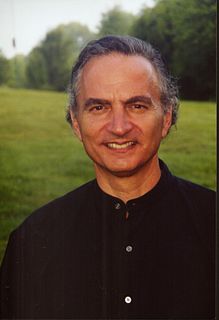A Quote by Alexander Hamilton
Happy will it be for ourselves, and most honorable for human nature, if we have wisdom and virtue enough to set so glorious an example to mankind!
Related Quotes
Souls that have lived in virtue are in general happy, and when separated from the irrational part of their nature, and made clean from all matter, have communion with the gods and join them in the governing of the whole world. Yet even if none of this happiness fell to their lot, virtue itself, and the joy and glory of virtue, and the life that is subject to no grief and no master are enough to make happy those who have set themselves to live according to virtue and have achieved it.
Human nature itself is evermore an advocate for liberty. There is also in human nature a resentment of injury, and indignation against wrong. A love of truth and a veneration of virtue. These amiable passions, are the "latent spark" . . . If the people are capable of understanding, seeing and feeling the differences between true and false, right and wrong, virtue and vice, to what better principle can the friends of mankind apply than to the sense of this difference?
As riches increase and accumulate in few hands, as luxury prevails in society, virtue will be in a greater degree considered as only a graceful appendage of wealth, and the tendency of things will be to depart from the republican standard. This is the real disposition of human nature; it is what neither the honorable member nor myself can correct. It is a common misfortunate that awaits our State constitution, as well as all others.
Hypocrisy itself does great honor, or rather justice, to religion, and tacitly acknowledges it to be an ornament to human nature. The hypocrite would not be at so much pains to put on the appearance of virtue, if he did not know it was the most proper and effectual means to gain the love and esteem of mankind.
Let the foundation of thy affection be virtue, then make the building as rich as glorious as thou canst; if the foundation be beauty or wealth, and the building virtue, the foundation is too weak for the building, and it will fall: happy is he, the palace of whose affection is founded upon virtue, walled with riches glazed with beauty, and roofed with honor.
Compassion does not only refine and civilize human nature, but has something in it more pleasing and agreeable, than what can be met with in such an indolent happiness, such an indifference to mankind, as that in which the stoics placed their wisdom. As love is the most delightful passion, pity is nothing else but love softened by a degree of sorrow: In short, it is a kind of pleasing anguish, anguish as well as generous sympathy, that knits mankind together, and blends them in the same common lot.
With a heart full of love and gratitude, I now take leave of you. I most devoutly wish that your later days may be as prosperous and happy as your former ones have been glorious and honorable. I cannot... I cannot come to each of you but shall feel obliged if each of you will come and take me by the hand.
The true wisdom of the philosopher ought to insist in enjoying everything. Yet we apply ourselves to dissecting and destroying everything that is good in itself, that has virtue, albeit the virtue there is in mere illusions. Nature gives us this life like a toy to a weak child. We want to see how it all works; we break everything. There remains in our hands, and before our eyes, stupid and opened too late, the sterile wreckage, fragments that will not again make a whole. The good is so simple.
































